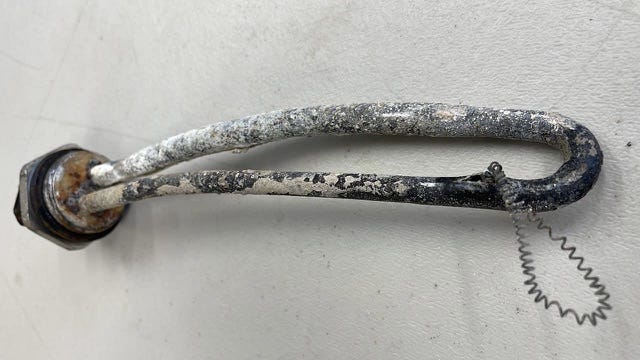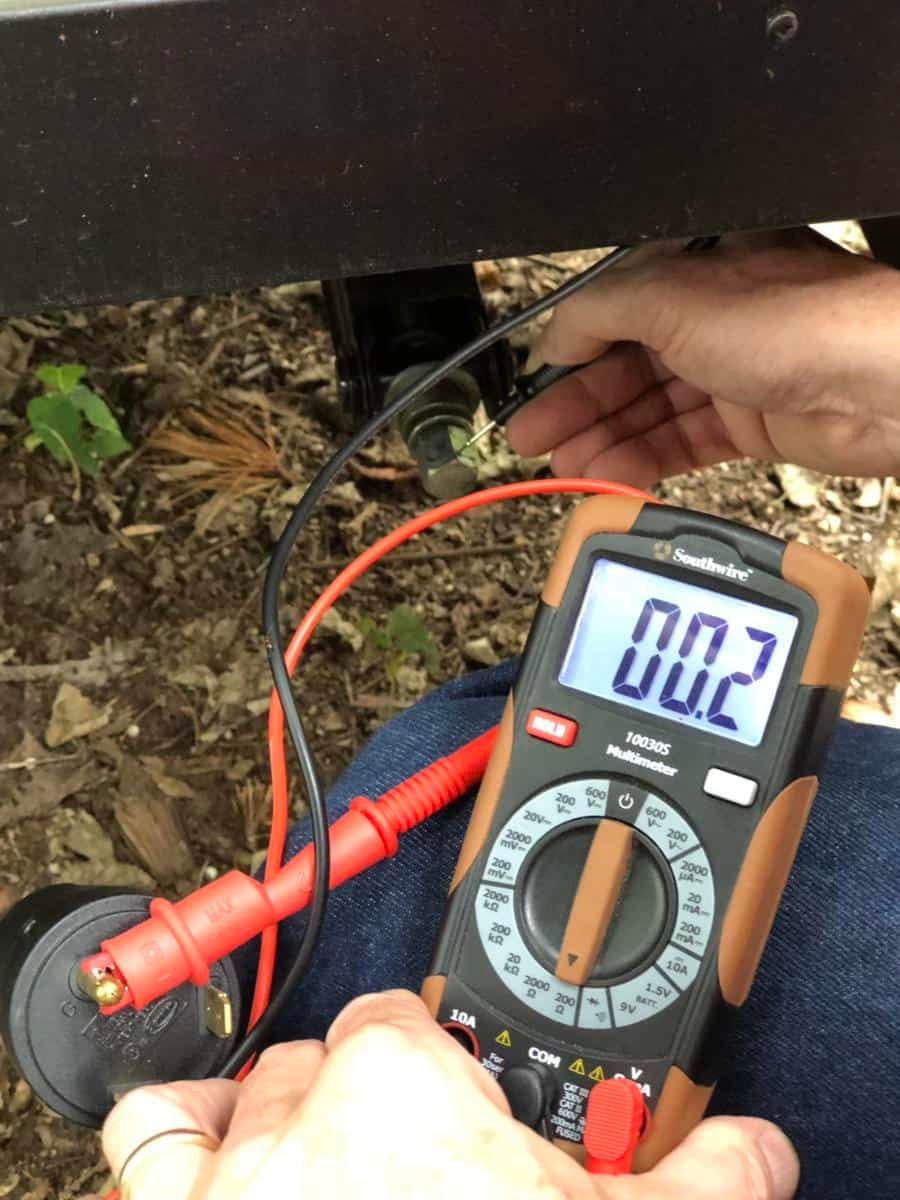Water heater element fail causes circuit breaker to trip!
But will it create a hot-skin voltage? (June 2023)
Hey Mike,
Well, this certainly explains my circuit breaker tripping issue with a possible hot-skin opportunity. -John
Hey John,
Yes, if you have a lost ground in your shore power connection plus a failed water heater element it will certainly create a hot-skin voltage. But if your RV ground wire is properly bonded back to the power company’s service panel, then it will leak a few amps to ground without creating any hot-skin voltage.
A properly grounded RV can’t develop a hot-skin voltage
That’s right! If your RV’s ground conductor is properly connected to the neutral-ground bond in the campground (or home) service panel, then it’s impossible for your RV to develop more than a volt or two above earth potential.
No, reversed outlet polarity won’t cause a hot-skin voltage
That’s an urban myth I’ve heard for decades. While a hot-neutral reverse polarity will cause a 3-light tester or surge protector to warn you there’s a problem, because the neutral conductor is isolated from the chassis ground in your RV, it won’t cause a hot-skin voltage. However, a reverse polarity does hint that whoever wired the pedestal outlet wasn’t paying attention and never tested it.
Quick way to find a hot-skin voltage
The easiest and safest way to find a hot-skin voltage (anything over 40 volts is considered to be a dangerous hot-skin) is to use a Non-Contact Voltage Tester as I show in the video below. Watch it by clicking the picture below or HERE.
If you identify a hot-skin voltage with a Non-Contact Voltage Tester (NCVT) or haven’t done so already, please read my in-depth article on RV Hot-Skin troubleshooting HERE where I explain how a hot-skin voltage occurs and the best ways to repair it.
Okay everyone. As requested I’ve posted a short video and an in-depth article on the same topic. What do you think?
Let’s play safe out there - Mike






Thanks as always Mike for keeping us aware of potential causes of hot skin conditions! It is easy to take it for granted that everything is wired correctly. I recently added an outlet circuit to an outdoor electrical panel. Everything went fine connecting the hot and neutral but when I was connecting the ground wire to the ground bus bar, I discovered that the screw connecting the ground bus bar to the chassis was loose. The individual ground connection screws were all tight. It was just the grounding that was loose and this made me suspect that it had been this way for a long time. I’ve never received a shock when touching the breaker box so there must have been a relatively good path to ground through the loose screw. But it felt really good to know that my ground and neutral connections had been checked and were in order. The take-home message is that it’s good to check the neutral and ground bus connection screws every once in a while. It’s also good to check circuit breaker connection screws particularly on high current appliances like dryers and ovens. I found one that was sizzling and replaced it of course. Breakers with high current’s flowing through them are working hard and over many years it can take a toll. Of course,it is important that any circuit breaker you check is switched off before you check the connection.